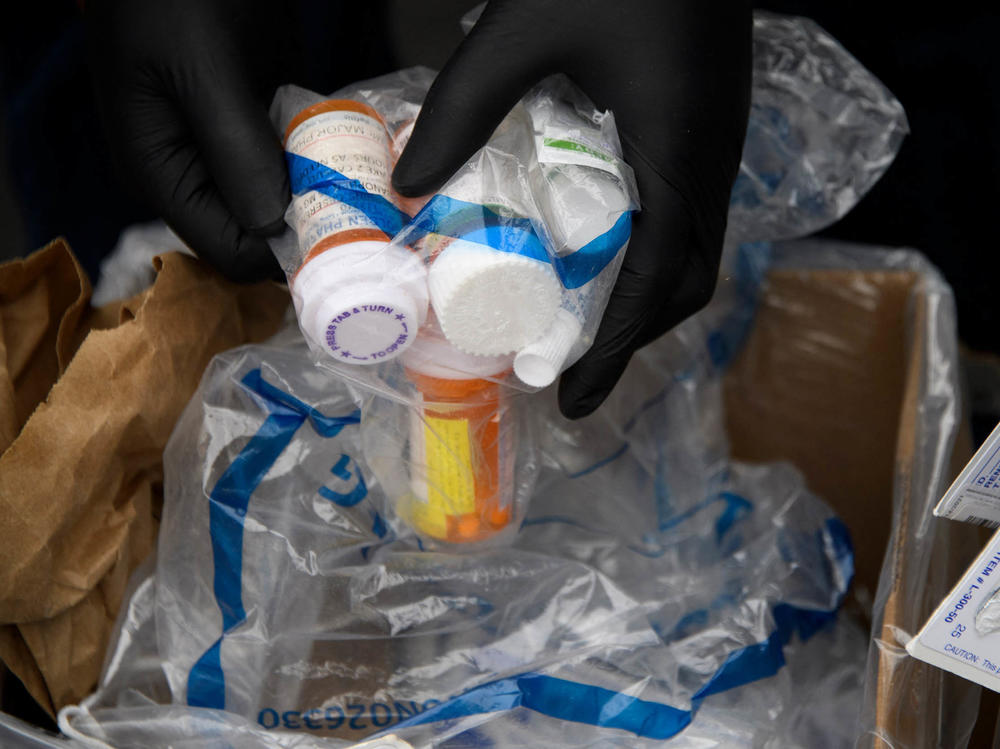Section Branding
Header Content
Overdose deaths continued to rise in 2021, reaching historic highs
Primary Content
New provisional data released by the federal government estimates that nearly 108,000 people died from drug overdoses from January to December, 2021.
"That's about a 15% increase from the number of deaths in 2020," says Farida Ahmad, a research scientist with the Center for Disease Control and Prevention's National Center for Health Statistics. Nearly 94,000 died in 2020.
The year-to-year rise in overdose deaths was much higher from 2019 to 2020, jumping by a historic 30%. While the rise in deaths slowed down in 2021, the total number of deaths is still the highest annual overdose deaths ever recorded in the U.S.
"Over 80,000 of those deaths involved opioids, which was about a 15% increase from last year," says Ahmad.
And more than 71,000 of all opioid related deaths involved illegally manufactured fentanyl, which in recent years has been mixed in with a range of illicit drugs.
"These past three years we have seen an increase of contamination of other illicit drugs with fentanyl, be it cocaine, be methamphetamine, and more recently, illicit prescription drugs," says Dr. Nora Volkow, director of the National Institute on Drug Abuse.
This has put a bigger population of drug users at risk of overdoses, she adds. "In many instances, these may be people that take just one pill and they get that contaminated pill and they can die."
That includes teenagers, she adds, who have until recently been less likely to die from an overdose. A recent study showed that for the first time in a decade, the number of teens who died from overdoses rose in 2020. Volkow and other addiction researchers think it's primarily because fentanyl is becoming increasingly added into counterfeit prescription drugs, which are popular among this age group.
"It's absolutely devastating and heartbreaking that we continue to remain in this position," says Sheila Vakharia, deputy director of research and academic engagement at the Drug Policy Alliance, an addiction policy advocacy group. "We are over 20 years in this overdose crisis and there's no sign of any kind of slowing down of deaths. If anything, things have only seemed to have gotten more dire."
In April, the Biden administration announced its plans to address the rising number of overdose deaths, including increasing access to harm reduction methods like Naloxone, the medication that reverses overdoses.
Vakharia says she was heartened to see such "historic" investments in improving access to harm reduction measures.
"Harm reduction has historically been incredibly underfunded and has been relegated to state and local funding or private funding to sustain itself," she says.
However, a lot more needs to happen to address the scale of the problem, she adds. There are currently just "two legally operating above-the-ground harm reduction overdose prevention centers in the country," at a time when communities across the country need them, she says.
"And so I think that all of our efforts moving forward can definitely be further enhanced, can be further amplified and further ramped up," she adds.
Copyright 2022 NPR. To see more, visit https://www.npr.org.

